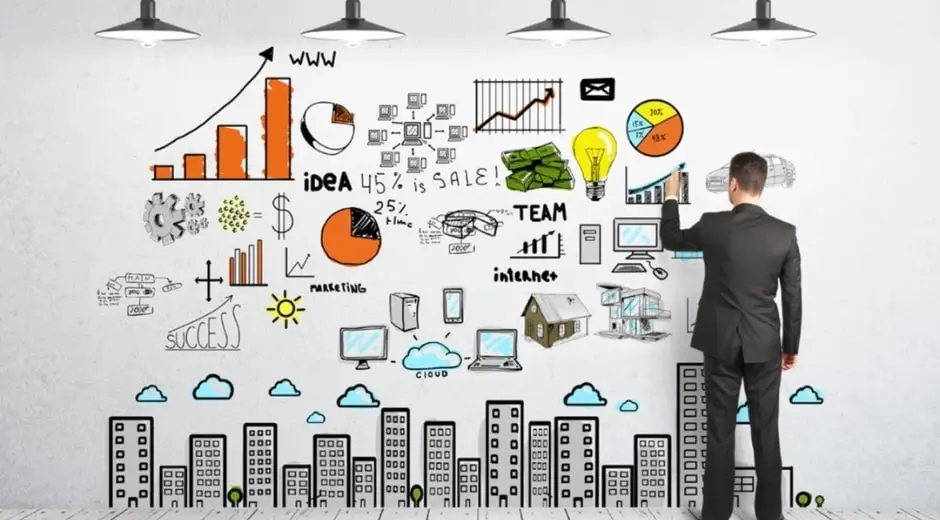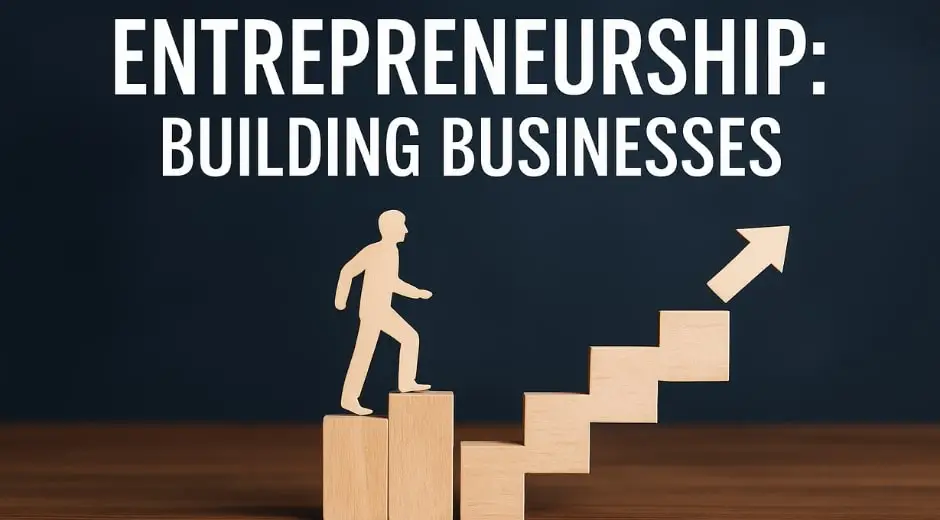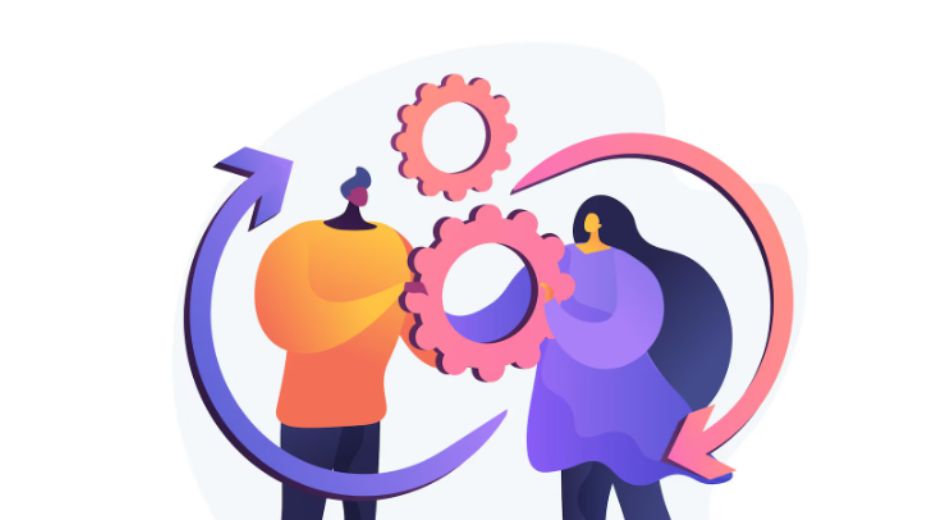The Mindset Behind Risk, Reward, and Sustainable Business
In 2025, successful entrepreneurs understand that the journey of business creation goes far beyond simply launching a product or service. It requires cultivating a mindset that balances risk, reward, and long-term sustainability. The modern business landscape is complex, shaped by technology, consumer behavior, global competition, and societal expectations.
Entrepreneurs who master the mental framework behind business creation are better equipped to innovate, adapt, and grow resilient companies that endure market fluctuations and deliver lasting value. This article explores the mindset, strategies, and practical approaches necessary for building sustainable businesses in today’s dynamic economy.
1. Understanding Risk in Business Creation
Risk is inherent in any entrepreneurial endeavor. However, not all risk is equal. Understanding, evaluating, and mitigating risk is central to sustainable business creation.
Types of Risks Entrepreneurs Face:
-
Financial Risk: Investments, cash flow management, and funding decisions.
-
Market Risk: Changes in consumer demand, competitive pressures, or economic conditions.
-
Operational Risk: Supply chain issues, technology failures, or staffing challenges.
-
Reputational Risk: Brand perception and stakeholder trust.
Entrepreneurs with a proactive mindset treat risk as an opportunity for learning rather than a threat. Structured risk assessment tools, scenario planning, and data-driven decision-making help reduce uncertainty while enabling growth.
2. Reward: The Driving Force Behind Entrepreneurship
Reward is more than monetary gain. In business creation, rewards can take multiple forms:
-
Financial Profit: Revenue, profitability, and investor returns.
-
Market Positioning: Becoming a recognized and trusted brand.
-
Social Impact: Creating products or services that improve communities or the environment.
-
Personal Fulfillment: The satisfaction of solving problems and building something meaningful.
Entrepreneurs who embrace a holistic view of reward are better equipped to pursue ventures that balance profitability with purpose.
3. The Mental Framework for Sustainable Business Creation
Sustainable business creation requires more than tactical knowledge — it requires a specific mindset:
-
Long-term Thinking: Focusing on strategies that endure beyond immediate gains.
-
Adaptability: Pivoting quickly when market conditions or customer needs change.
-
Resilience: Embracing failures as opportunities to learn and improve.
-
Ethical Decision-Making: Building trust with stakeholders through transparency and integrity.
A strong mindset ensures that risks are managed intelligently and rewards are maximized responsibly.
4. Strategic Planning in Business Creation
A clear strategy is crucial to bridge the gap between risk and reward. Effective business creation involves:
-
Market Research: Understanding target demographics, competitors, and emerging trends.
-
Business Model Design: Identifying how the company will create, deliver, and capture value.
-
Resource Allocation: Ensuring funds, talent, and technology are optimized for growth.
-
KPIs and Metrics: Measuring performance to guide decision-making and adaptation.
Strategic planning reduces uncertainty and provides a roadmap for sustainable growth.
5. Financial Discipline and Risk Management
Sound financial practices are essential in business creation. Entrepreneurs must balance investment in growth with maintaining operational stability.
-
Cash Flow Management: Monitoring inflows and outflows to avoid liquidity crises.
-
Funding Strategy: Choosing between bootstrapping, venture capital, or loans based on risk tolerance.
-
Contingency Planning: Preparing for market downturns or unexpected costs.
-
Profitability Monitoring: Regularly assessing margins and operational efficiency.
Financial discipline not only mitigates risk but also ensures resources are available to seize new opportunities.
6. Innovation as a Tool for Sustainable Business Creation
Innovation is a cornerstone of modern entrepreneurship. It allows businesses to differentiate themselves, solve unique problems, and stay competitive.
Innovation strategies include:
-
Product or Service Innovation: Creating offerings that meet unmet needs.
-
Process Innovation: Streamlining operations to improve efficiency.
-
Technological Innovation: Leveraging AI, cloud solutions, or blockchain to enhance scalability.
-
Business Model Innovation: Exploring new revenue streams or partnerships.
Businesses that innovate continuously are more resilient and better positioned for long-term success.
7. Leadership and Team Dynamics
The mindset behind business creation is only as strong as the team executing the vision. Effective leadership fosters a culture of accountability, collaboration, and continuous improvement.
-
Vision Alignment: Ensuring all team members understand and commit to the company mission.
-
Empowerment: Encouraging creativity and decision-making at all levels.
-
Feedback Loops: Using data, customer feedback, and internal insights to guide improvement.
-
Diversity and Inclusion: Leveraging varied perspectives for more robust problem-solving.
Strong leadership not only drives performance but also nurtures a sustainable organizational culture.
8. The Role of Sustainability in Modern Business Creation
Sustainability is no longer optional. Investors, consumers, and regulators increasingly prioritize companies that balance profit with environmental and social responsibility.
Sustainable practices include:
-
Environmental Responsibility: Reducing carbon footprint and resource waste.
-
Social Responsibility: Fair labor practices, community engagement, and inclusivity.
-
Economic Responsibility: Ensuring long-term profitability without exploiting stakeholders.
-
Ethical Governance: Transparent reporting, anti-corruption policies, and accountability mechanisms.
Businesses that integrate sustainability into their core strategy often enjoy stronger brand loyalty, investor confidence, and market resilience.
9. Digital Transformation and Risk-Reward Optimization
Technology is a driving force behind modern business creation. Digital tools streamline operations, reduce risk, and create new revenue opportunities.
Key areas include:
-
Cloud Computing: Reduces IT infrastructure costs and enhances scalability.
-
AI and Data Analytics: Provides actionable insights for smarter decisions.
-
E-commerce Platforms: Expand market reach and sales channels.
-
Cybersecurity Solutions: Protect assets, data, and customer trust.
Adopting digital tools allows entrepreneurs to manage risk proactively and maximize reward efficiently.
10. Case Studies: Success in Risk and Reward Balance
Examining real-world examples illustrates how mindset impacts business creation:
-
Tech Startups: Companies that leveraged AI and cloud platforms while carefully managing cash flow achieved rapid growth without overextending.
-
Green Businesses: Entrepreneurs who prioritized sustainability attracted loyal customers and investors, balancing short-term costs with long-term rewards.
-
Social Enterprises: Businesses integrating social impact into their mission achieved market differentiation and stakeholder trust, leading to sustainable profitability.
These examples demonstrate that risk and reward are inseparable — success comes from a calculated, resilient approach.
11. Continuous Learning and Adaptation
Entrepreneurs must cultivate lifelong learning to thrive in the modern business environment.
-
Market Trends: Monitoring competitors, consumer behavior, and industry developments.
-
Financial Literacy: Understanding funding options, taxation, and investment strategies.
-
Leadership Skills: Developing empathy, communication, and decision-making capabilities.
-
Technology Awareness: Staying informed on emerging tools and platforms.
Adaptation ensures that business creation efforts remain relevant and competitive over time.
12. The Psychology of Risk and Reward
The mindset behind entrepreneurship is deeply psychological. Understanding cognitive biases, emotional triggers, and stress responses helps entrepreneurs make better decisions.
-
Fear vs. Opportunity: Successful entrepreneurs view risk as a chance to grow rather than a threat to avoid.
-
Delayed Gratification: Prioritizing long-term value over immediate reward strengthens sustainable business creation.
-
Resilience: Developing mental toughness to recover from setbacks and learn from mistakes.
-
Confidence: Believing in one’s vision while remaining flexible to pivot when necessary.
Mental preparation is as critical as financial or operational planning in achieving entrepreneurial success.
13. Building a Sustainable Business Plan
A sustainable business plan integrates risk management, innovation, and long-term value creation.
Key components include:
-
Mission and Vision: Guiding principles that align all decisions.
-
Financial Modeling: Forecasts, budgets, and contingency planning.
-
Operational Strategy: Processes that ensure efficiency and scalability.
-
Marketing and Customer Engagement: Strategies to attract, retain, and satisfy customers.
-
Sustainability Initiatives: Social, environmental, and governance practices.
A comprehensive plan serves as a roadmap, helping entrepreneurs navigate the uncertainties of business creation while maximizing reward.
14. Conclusion: The Mindset That Drives Success
The journey of business creation in 2025 is complex, requiring a balance between risk, reward, and sustainability. Entrepreneurs who cultivate the right mindset — embracing adaptability, innovation, financial discipline, and ethical leadership — are better positioned to build resilient, profitable, and socially responsible companies.
Success is no longer defined solely by profit margins or market share. It is defined by the ability to navigate uncertainty, create lasting value, and positively impact society.
By mastering the psychology of risk, the art of reward optimization, and the principles of sustainability, entrepreneurs can transform ideas into thriving ventures that endure.
Internal Link Example:
For further insights on building sustainable businesses, visit BusinessForumHub.com.
External References:
-
Industry insights and trends: NewspapersIO.com
-
Investment and finance resources: FinanceWorldHub.com
Simple Entrepreneurship

Cash Management Habits Every Growing Business Needs
Cash Management Habits Every Growing Business Needs

Process Automation Tools That Save Time and Reduce Errors
Process Automation Tools That Save Time and Reduce Errors

How Team Culture Drives Long Term Business Success
How Team Culture Drives Long Term Business Success

Cost Control Methods That Improve Profit Without Cutting Growth
Cost Control Methods That Improve Profit Without Cutting Growth

Decision Making Skills That Separate Great Leaders From Average Ones
Decision Making Skills That Separate Great Leaders From Average Ones
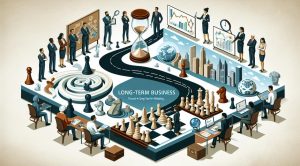
Long Term Business Thinking In Volatile Markets
Long Term Business Thinking In Volatile Markets

Market Strategy Insights For Competitive Advantage
Market Strategy Insights For Competitive Advantage

Leadership Strategy Trends In Global Organizations
Leadership Strategy Trends In Global Organizations
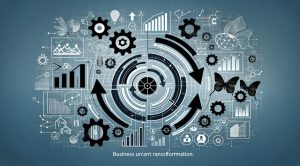
Business Transformation Signals Across Industries
Business Transformation Signals Across Industries





